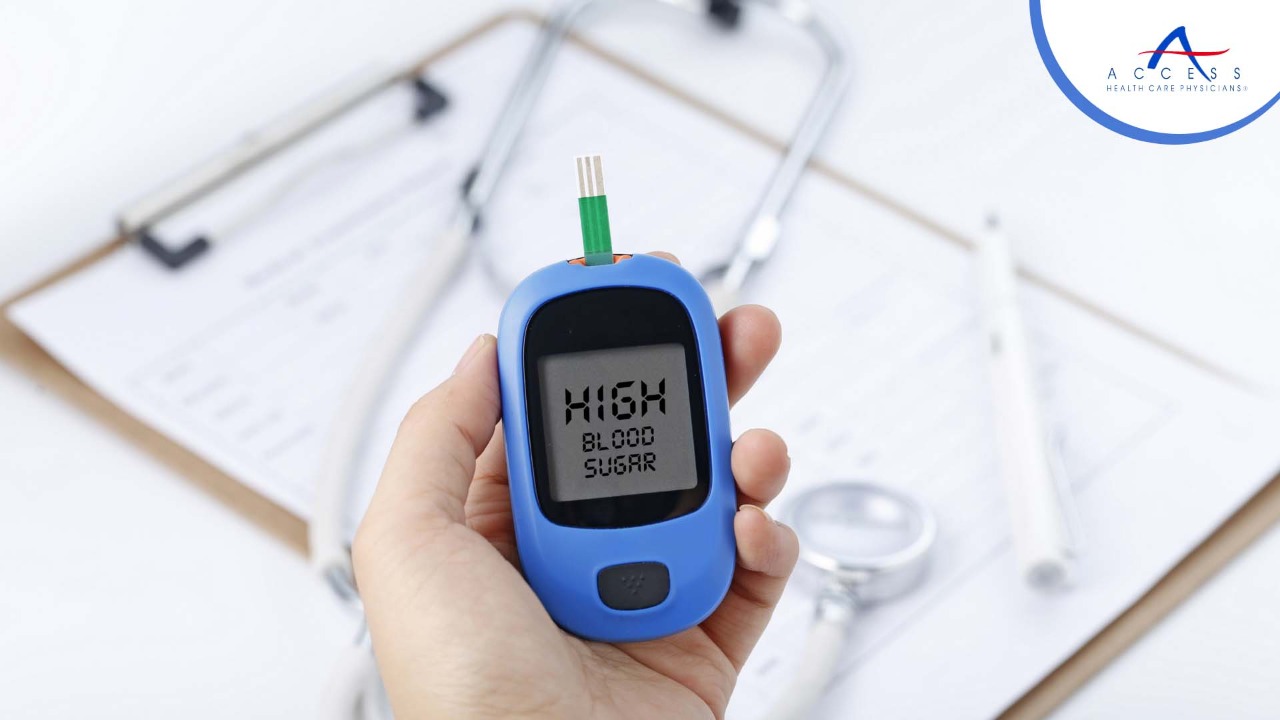Glucose finds its origin in the Greek word for “sweet” and is a type of natural sugar that your body uses for energy. Glucose is central to your body’s energy consumption. All nutrients such as carbohydrates, lipids, and proteins break down into glucose. This serves as the primary metabolic fuel source and is the precursor for different synthesizes.
Glucose is the final substrate that enters the tissue cells and converts to ATP (adenosine triphosphate), the body's energy currency. It is then consumed in multiple ways by the active transport of molecules across cell membranes, contraction of muscles, and performance of mechanical work.
Did you know?
Carbohydrates are used to supply energy across the body’s cells. Your body breaks down complex carbohydrates into simple sugars i.e., glucose and fructose. Glucose in the blood is controlled and monitored very strictly as any ups or downs can lead to serious health complications. When the blood glucose is extremely high, the insulin-secreting cells respond by transporting glucose out of the bloodstream. On the other hand, when your blood glucose is low, the pancreas releases glucagon.
Your metabolic rate is directly connected to your glucose. When the insulin cells are damaged or if your body cells become resistant to insulin’s effect, it implies that your blood sugar levels are not monitored. This is basically Type 1 and Type 2 Diabetes.
Energy and Storage Process
Our body is designed to maintain the levels of glucose in our blood constant by the beta cell in the pancreas. Your blood sugar rises every time you eat and then insulin is released into your bloodstream so that glucose can get inside the cells. Your body uses this glucose and amino acids for energy and is the primary source of fueling your brain. The nerve cells and chemical messengers need this energy to process information and function. The leftover glucose is stored in small bundles called glycogen in the liver and muscles for about a day.
Once it has been a few hours since your last meal, your blood glucose level drops which is when your pancreas stops churning out insulin. The pancreas then starts producing a hormone called glucagon which signals the liver to break down the stored glycogen back into glucose. This travels to the bloodstream to replenish your supply.
Blood Sugar and Metabolic Health
The metabolic health of your body refers to how well and quickly your body is able to convert food and stored energy into cellular fuel. When this level changes or goes haywire, it can lead to diabetes or heart disease. As our daily lifestyle and habits change, it pushes our metabolic health to the worse. According to current data, only 12% of American adults are ‘metabolically healthy’. This shows how the body's cells use energy to grow, repair, reproduce, and more.
While fat, protein, and glucose all equally contribute to your body’s metabolic health; maintaining a stable blood sugar level and getting sufficient exercise have the greatest impact on metabolism. While insulin helps in storing excess energy, exercise helps build muscle, and they are both anabolic. The metabolism is affected by which carbohydrates you choose to consume and what combination your body chooses to burn for energy.
Insulin resistance is known to disrupt metabolism as the glucose instead of being used for energy, chooses to stay in your bloodstream. This increased level of insulin leads to fat storage and weight gain.
Access Health Care Physicians is a primary care facility that offers a number of services to help you keep your glucose in check. You can connect with our doctors for a consultation and learn how to maintain your blood glucose levels.


